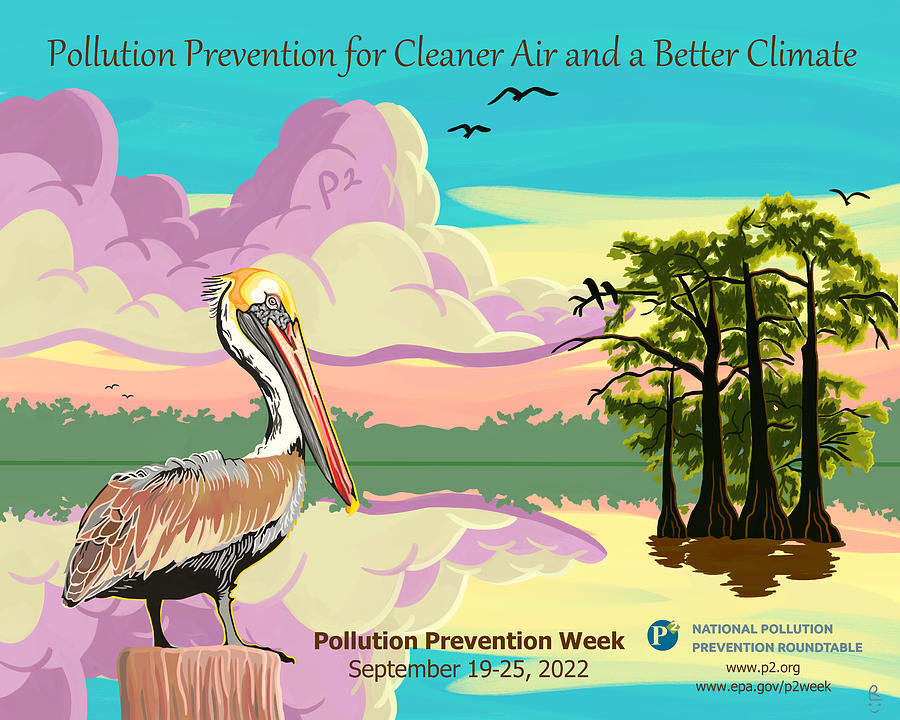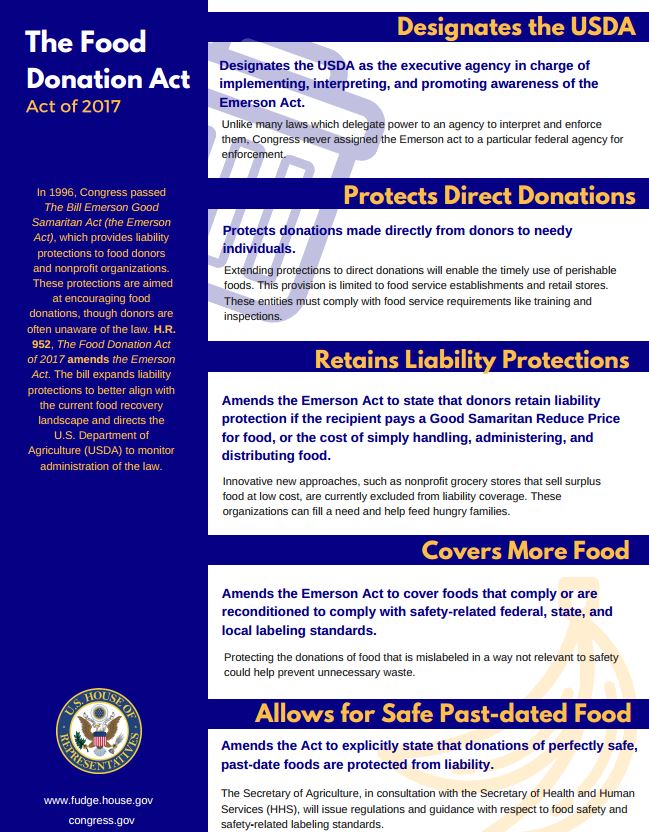
The third week of September every year is celebrated as Pollution Prevention (P2) Week in the U.S. Thus in 2022, we focus particularly on pollution prevention from September 19th to the 25th, although P2 can and should be a priority year-round.
As defined by the National Pollution Prevention Roundtable (NPPR, emphasis added), “Pollution is the contamination of air, soil, or water by the discharge of harmful substances. Pollution prevention is the reduction or elimination of pollution at the source (source reduction) instead of at the end-of-the-pipe or stack. Pollution prevention occurs when raw materials, water, energy and other resources are utilized more efficiently, when less harmful substances are substituted for hazardous ones, and when toxic substances are eliminated from the production process. By reducing the use and production of hazardous substances, and by operating more efficiently we protect human health, strengthen our economic well-being, and preserve the environment.”
Rather than being a burden on industry, NPPR points out that “Adopting pollution prevention practices and techniques often benefits industry by lowering a company’s operational and environmental compliance costs. By preventing the generation of waste, P2 can also reduce or eliminate long-term liabilities and clean-up costs. Furthermore, disposal costs are reduced when the volume of waste is decreased. This can also lead to a reduction in workplace exposures to hazardous materials which can affect workers’ health and hence, their productivity. If less waste is produced, there will also be a diminished need for on-site storage space. Furthermore, by preventing pollution there will be a greater likelihood that a company will be in compliance with local, state, and federal compliance statutes. Finally, as community pillars, businesses shoulder an important responsibility for protecting the environment and natural resources for their own good as well as that of society.”
And did you know that in 1990, Congress passed the Pollution Prevention Act (P2Act), which states “The Environmental Protection Agency must establish a source reduction program which collects and disseminates information, provides financial assistance to States, and implements the other activities….”
Helping businesses, organizations, institutions, and government agencies throughout Illinois and beyond to prevent pollution and use resources more efficiently to benefit our shared environment while also ensuring that companies and communities are more competitive and resilient is essentially the mission of the ISTC Technical Assistance Program (TAP). Our team is here to help your organization identify and implement ways to make your operations more sustainable and to prevent pollution. TAP is funded not only by the State of Illinois but also a variety of grants and fee-for-service projects for a variety of clients.
Currently, TAP has funding from the U.S. Environmental Protection Agency (EPA) to provide free sustainability assessments to Illinois manufacturers in the following sectors:
These assessments can help facilities reduce business costs, energy and water consumption, wastewater generation, emissions, and hazardous material usage, which can result in increased profitability, productivity, and competitiveness as well as recycling or diversion of by-products.
So if you are an Illinois manufacturer with facilities or supporting industries in those sectors, click on the link associated with your sector above to learn more about the assessment opportunity, and how TAP can help you identify P2 opportunities today. You can also access an overview flyer at https://uofi.box.com/s/fu0hsmj6skm52vl290nu7kiuohp758xa or contact Irene Zlevor via email or by phone at 217-300-8617. Additionally, a recorded webinar, presented to Sustain Rockford, describes the assessment process in detail.
There are opportunities for everyone to learn more about and practice P2–not just manufacturers. To learn more, explore the links below.
- U.S. EPA–Pollution Prevention Week. This portion of the U.S. EPA website includes information on various P2 programs at EPA, including Environmentally Preferable Purchasing, Green Chemistry, Safer Choice, and more. There are also resources and tips for practicing P2 both at work and at home.
- National Pollution Prevention Roundtable (NPPR). NPPR is a national forum that promotes the development, implementation, and evaluation of efforts to avoid, eliminate, or reduce waste generated to air, land, and water. Learn more about the organization’s goals and objectives, workgroups that bring together P2 professionals to focus on key topics, webinars, membership and more. Plus, you can purchase this year’s P2 Week image (featured at the top of this post) as a poster, mug, t-shirt, or more and explore images and themes from previous years.
- Explore TAP services, programs, publications and project descriptions on the ISTC Technical Assistance Program website.
- Learn more about ISTC in general, and explore our publications, which include various newsletters and guides to sustainability.
- Learn about the Pollution Prevention Resource Exchange (P2RX), which was “a national network of regional P2 information centers whose mission was to advance pollution prevention as a cornerstone of sustainability.” Links to resources from each regional center are maintained on the U.S. EPA website.
- Pollution Prevention Laws and Policies. Learn more about the P2Act, relevant Executive Orders, and P2 mandates in federal statutes in the United States.


